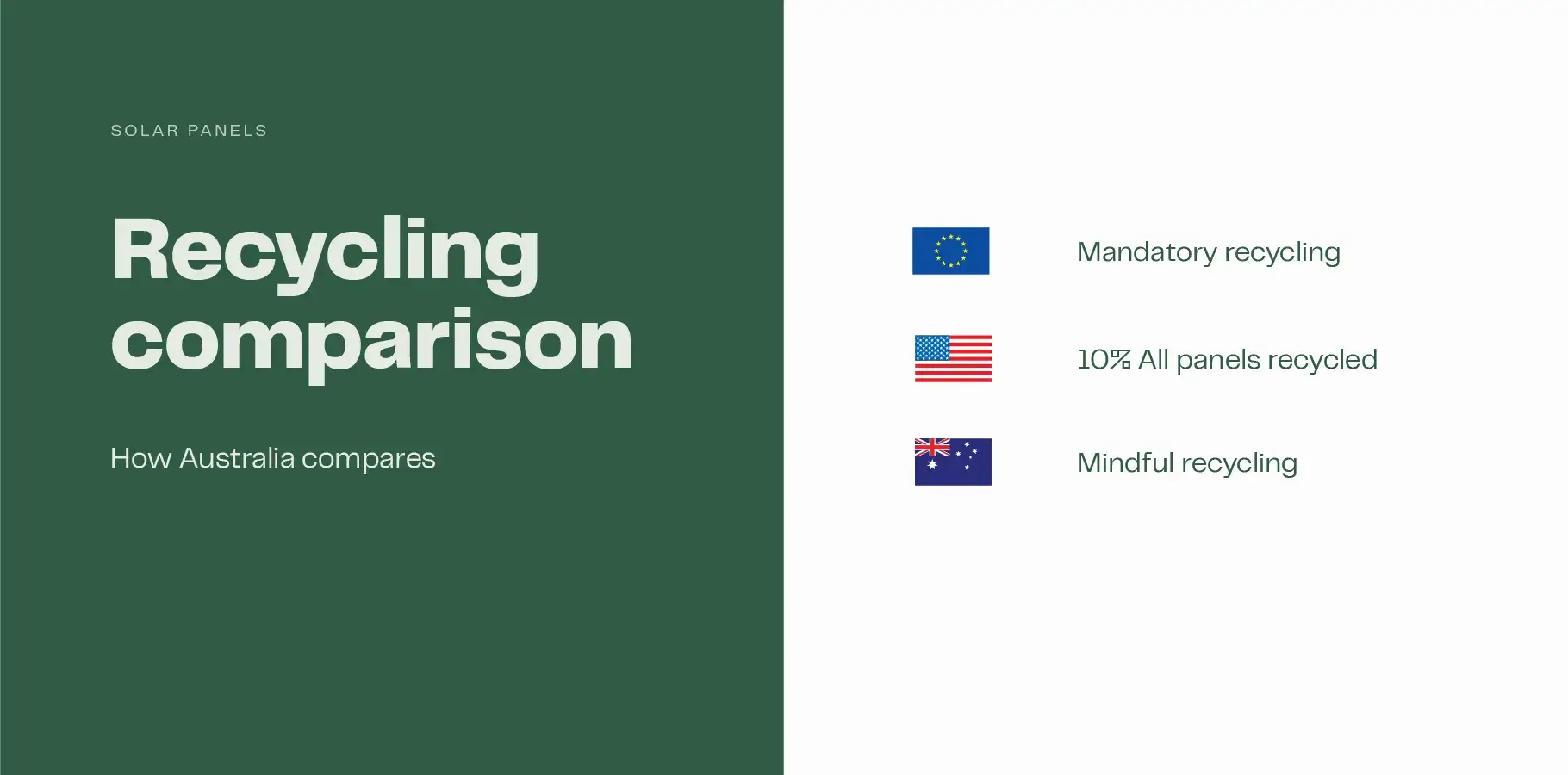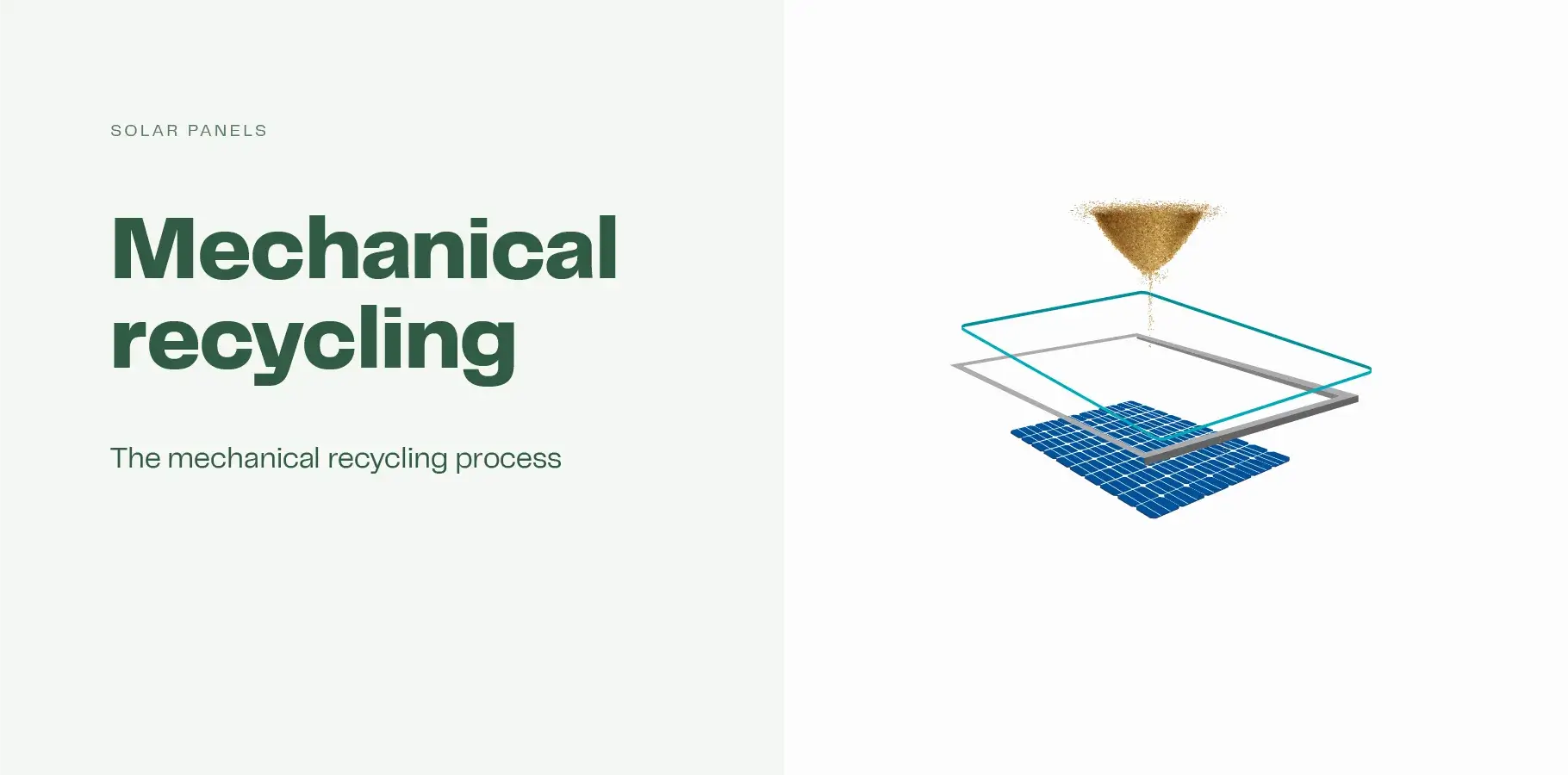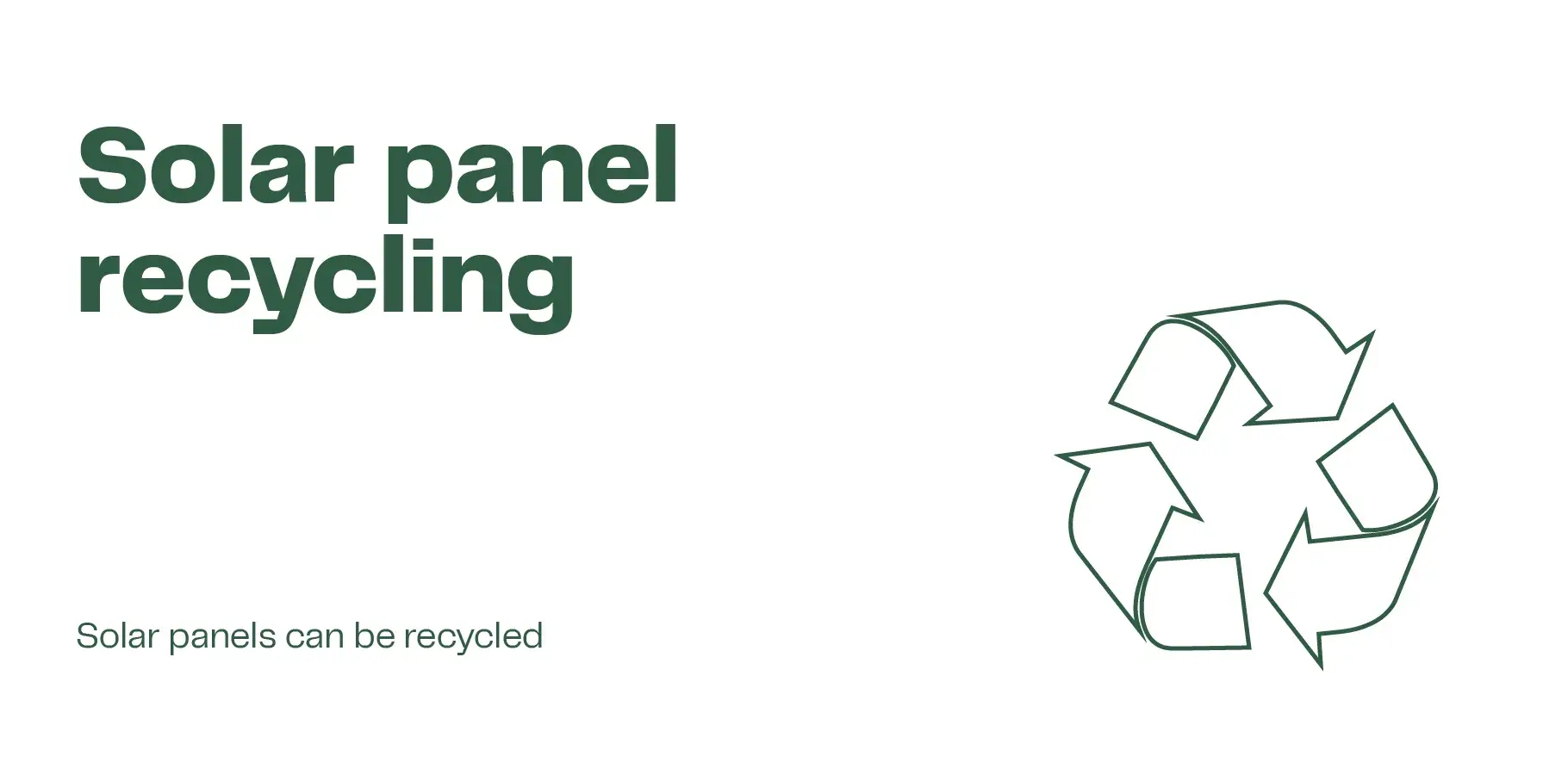It is possible to recycle your old solar panels. Homeowners and businesses alike will want to understand that while recycling e-waste (electronic waste) such as solar panels is possible, it isn’t always straightforward.
Businesses have a responsibility to focus on sustainability initiatives, and recycling e-waste is certainly a worthwhile consideration, particularly when some businesses fall back on greenwashing instead of practising eco-friendly values. Understanding how solar panels work is only the beginning of the recycling process.
Solar panel recycling: U.S. vs. Europe
Solar regulations vary by country, and recycling is still an ongoing point of discussion for local regulators. In the United States, only about 10% of solar panels are recycled. This e-waste problem is a point of contention, as the U.S. federal government has no regulations mandating solar panel recycling at this point.
In the EU, solar panel recycling is mandatory. This leads to higher collection rates for recycling, and there are several initiatives to monitor not just the recycling collection rates, but the efforts to get more use out of those recycled materials as well.

Australia’s policies on recycling vary slightly from state to state, but the right setup to handle recycling solar waste effectively exists. Mindful recycling of solar parts is only going to grow over the years, so it’s great to know that Australia has modelled much of its recycling schemes from Europe’s successes.
How are solar panels recycled?
The solar panel recycling process is rather complex, as solar panels are built to last many years. The average lifespan is designed for 25 years, but many systems will last longer, albeit not at the same capacity.
Solar panel systems degrade over time, and multiple factors can either slow down or speed up this process. When proper maintenance is in place, solar panel systems last decades. However, storms, heat, humidity, and even lack of maintenance wear the system out faster.
As businesses and homeowners alike begin to update and upgrade solar systems, recycling becomes more and more of a top priority. When solar panels are recycled, the first step in the process is to deconstruct them to retrieve the materials.
Solar panel components
As you might imagine, solar panels are made using multiple components all working together to provide the functionality desired. To properly begin the recycling process, these parts and pieces must be separated, so that each facet can be repurposed. This deconstruction includes the following materials:
- Silicon: This material is at the heart of the solar panel, and it’s designed to aid in conductivity, durability, and function. It converts sunlight into electricity by creating a “photovoltaic” effect via photovoltaic cells, or semi-conducting material like polycrystalline and monocrystalline silicon, inside the panel.
- Metal: Most of the time, this would be aluminium, but other metals are used in the process to contribute to durability/conductivity.
- Glass: Glass is highly recyclable, and the low-iron tempered variant (also called safety glass or toughened glass) contributes to the solar panel’s ability to reflect the heat from the sun and even withstand impact from large hailstones. For the solar panel, the glass itself forms a protective covering,
- Wiring: Wiring is essential to solar panels, connecting to batteries and other support systems as needed. It acts as veins between all the photovoltaic cells inside the panel and is responsible for conducting energy.
- Plexiglass: Plexiglass is much more durable than glass and less sensitive to changes in temperature.
- Batteries: The batteries in a solar panel system don’t last forever, but they are used to store energy collected from the sun.
All of these components work together within the solar panel system, but the system has to be broken into these separate materials before recycling begins in earnest. This separation takes time, energy, and machinery.
Ways solar panels can be recycled
There are a few different ways that solar panel recycling can be approached. Panels can be refurbished or reused, or they can be deconstructed and repurposed entirely.
Reusing and refurbishing
Reusing solar panels as-is takes some reconfiguration, but it can extend the life of the parts and thus keep them out of landfills. Refurbishing is a much more intensive process, as all components have to be examined for their current function. Each component is repaired and brought back up to high capacity.
Mechanical recycling
The plastic aspects of solar panels are handled well by mechanical recycling, which focuses on separation and other advanced recycling techniques. Broadly speaking, the mechanical recycling of solar panels breaks each panel down and recycles its individual parts; these include metal, glass, wiring, copper, and other materials.
These recycled parts are then crushed into small pieces and ground into sand-like material at recycling facilities. This material undergoes a magnetic separation process that strips the metals away from the substance, which can then be reused to make glass, insulation, and more.

Chemical recycling
One of the most fascinating aspects of the entire recycling process is chemical recycling. It’s a broad term, but it’s picking up steam as companies look at how to use plastics and other materials differently.
Chemical recycling breaks down the polymers in plastic pollution into monomers which can then be re-polymerised into new material to later be used in new products. Solar panels feature plastic in areas such as their braces and other attachments. The specific chemical recycling process varies around the globe, but the three primary methods are purification, decomposition, and conversion.
Any plastics that cannot be recycled undergo pyrolysis, the process of converting non-recycled plastic garbage into synthetic crude oil that can be processed into gasoline.
Where can you recycle your solar panels?
The first solar panel recycling plant inside the country launched in May 2021, and it is run by Lotus Energy.
Solar panel recycling has yet to be streamlined in Australia; some recycling plants may require you to transport your old solar panels directly to them and the service itself may come at an extra charge to you. Some companies, like PV Industries, Reclaim PV Recycling, and Ecoactiv will come to you and pick up your old solar panels, also at a cost to you.
Another method is paying for e-waste disposal. Most states in Australia offer e-waste disposal services. To find out more about this, contact your local waste disposal facility. Finally, you can always sell your old solar panels to a scrap dealer who may take them off your hands and reuse/dispose of them properly.
Sustainability Victoria also reports on their own e-waste management and recycling schemes, including suggestions for drop-off points as well as what to do when there aren’t any close by.
Is recycling solar panels worth it?
For those looking at a solar power system to do their part in relying more on renewable sources of energy, recycling solar panels is worth it. The process allows for new life out of old parts, and lowers the overall cost over time.
Sustainability isn’t just about adopting renewable energy measures as alternatives to fossil fuels; recycling is a big part of sustainability as well. Learning where to dispose of old solar panels is not just important for your community; it impacts the whole planet.






